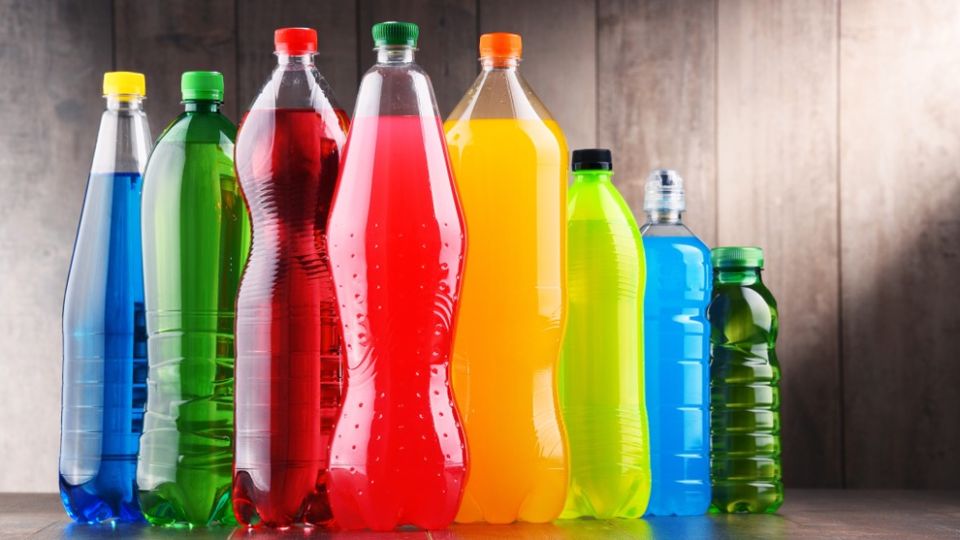October 6, 2022
JAKARTA – After years of sluggish progress, the government has inched closer to realizing its plan to impose an excise tax on all packaged sweetened beverages, when the Finance Ministry and the House of Representatives Budget Committee (Banggar) agreed to include sugary drinks as goods subject to excise tax in next year’s budget.
During a hearing on Tuesday last week, lawmakers and the government decided to include taxes sweetened beverages and plastic products in the 2023 state budget (APBN), though Finance Minister Sri Mulyani said implementing the excise would largely depend on the pace of recovery next year.
“Sweetened beverages and plastic products bring a lot of negative impacts to public health and the environment. But we are still calculating how much the excises imposed on the two products will impact the economy as a whole. We will try to find a balance,” Sri told journalists last week.
The Finance Ministry had been entertaining since 2009 the idea of taxing sugary drinks to diversify revenue sources but progress had been slow, mainly due to resistance from businesses.
According to the ministry, 96 percent of the excise tax revenue currently comes from tobacco products, which totaled Rp 188.8 trillion (US$12.3 billion) last year. It estimates that the sweetened beverage excise would rake in roughly Rp 6.25 trillion in annual revenue.
In 2020, the Finance Ministry again proposed imposing a sugary drink tax with a more detailed scheme, but the plan had yet to bear fruit.
‘Diabetes epidemic’
The agreement between the ministry and the House Budget Committee opens a new chapter in government efforts to combat the country’s growing diabetes epidemic.
According to a 2021 report from the International Diabetes Federation (IDF), around 19.5 million adults have diabetes in Indonesia, placing it among the top five countries in the world with the highest number of diabetes patients.
The report estimates diabetes prevalence of 10.8 percent among Indonesians aged 20 to 79, meaning that one in 10 adults in the country suffer from the chronic disease.
The number of diabetes patients in Indonesia in 2021 increased nearly twofold from around 10.7 million in 2019 and threefold from 7.3 million 2011.
Experts have attributed the growing diabetes prevalence in the country to an increasing shift toward sedentary lifestyles and unhealthy diets. The IDF’s data seem to support this theory, as 98 percent of the 19.5 million diabetes patients in the country have been diagnosed with type 2 diabetes, which is mainly linked to obesity and inactivity and develops over time.
The country has been seeing a massive increase in the annual consumption of sugary drinks over the past few decades, up 15 times from 51 million liters in 1996 to 780 million L in 2014. In 2020, Indonesia was the third-highest consumer of sweetened beverages in Southeast Asia.
State burden
The country’s growing diabetes prevalence has heavily burdened the Healthcare and Social Security Agency (BPJS Kesehatan), as medical expenditures for diabetes treatment have grown 8 percent each year.
In 2019, BPJS Kesehatan spent Rp 108 trillion on diabetes treatments, a 29 percent increase compared to Rp 84 trillion spent in 2017.
Deputy Health Minister Dante Saksono Harbuwono stated earlier that aside from increasing diabetes prevalence, the exponential rise in diabetes costs was due to the fact that 74 percent of Indonesian adults with diabetes were undiagnosed and untreated.
Early diagnosis and effective management of diabetes are crucial to reduce patients’ risk of developing serious health complications, such as heart disease, stroke, kidney failure and blindness. It can also cause diabetic neuropathy and peripheral artery disease, which increase the risk of foot or leg amputation.
The Health Ministry has been ramping up its efforts to curb the incidence of diabetes and reduce disease severity, including by increasing screening in remote regions and intensifying disease management and monitoring for patients.
However, noncommunicable disease control and prevention director Eva Susanti said on Thursday that these efforts alone were not sufficient to curb the country’s growing diabetes problem, and that a fiscal policy was needed to control the consumption of unhealthy foods to prevent the disease.
“We need to optimize our efforts by pushing manufacturers to reformulate their products so they have lower levels of sugar, salt and fat, such as by imposing an excise on sweetened beverages. We want to ensure that we have the appropriate policies to support a healthy food environment,” she added.
NGOs and the public have long called on the government to tax packaged sweetened beverages as soon as possible.
The Center for Indonesia’s Strategic Development Initiatives (CISDI), an independent think tank based in Jakarta, recently worked with the Indonesia Food Policy Coalition to create an online petition demanding the immediate imposition of a sugary drink tax. More than 9,000 people have signed the petition so far.
CISDI policy director Olivia Herlinda said neighboring countries, such as Thailand, Malaysia, Philippines and Brunei Darussalam had all imposed a sugary drink tax.
“In those countries, public consumption of sugar-sweetened beverages dropped dramatically after their governments imposed the tax. So we believe it is a very effective fiscal policy that can go a long way toward improving people’s health and economic wellbeing,” she said.
So far, 49 countries across the globe have an excise tax on packaged sweetened beverages.
Mexico’s 10 percent tax on sugary drinks, for example, has been proven to reduce the consumption of sweetened beverages by 19 percent.
Meanwhile, the United Kingdom’s sugary drink tax has led to widespread reformulation among manufacturers to reduce the level of sugar in their products.


